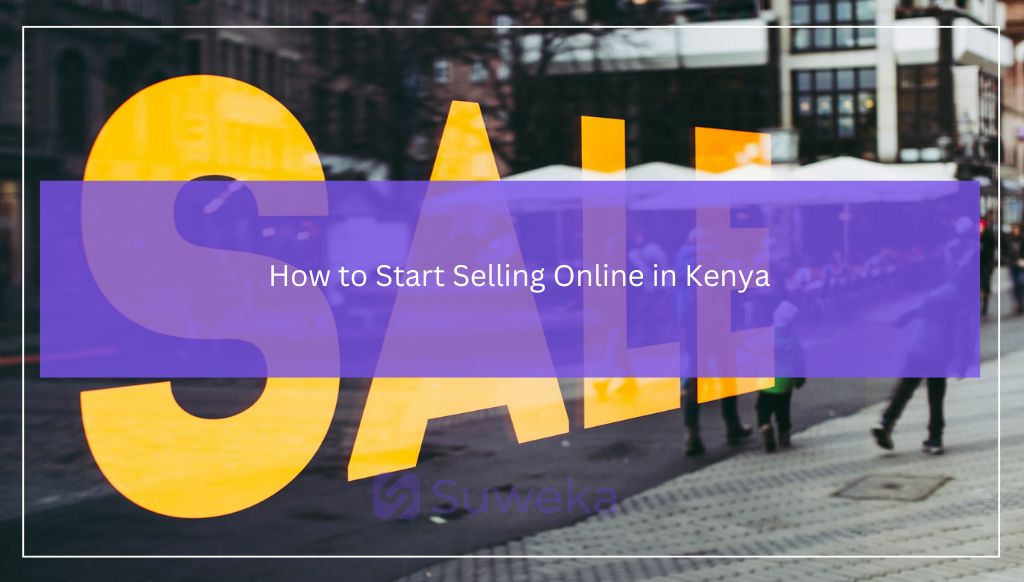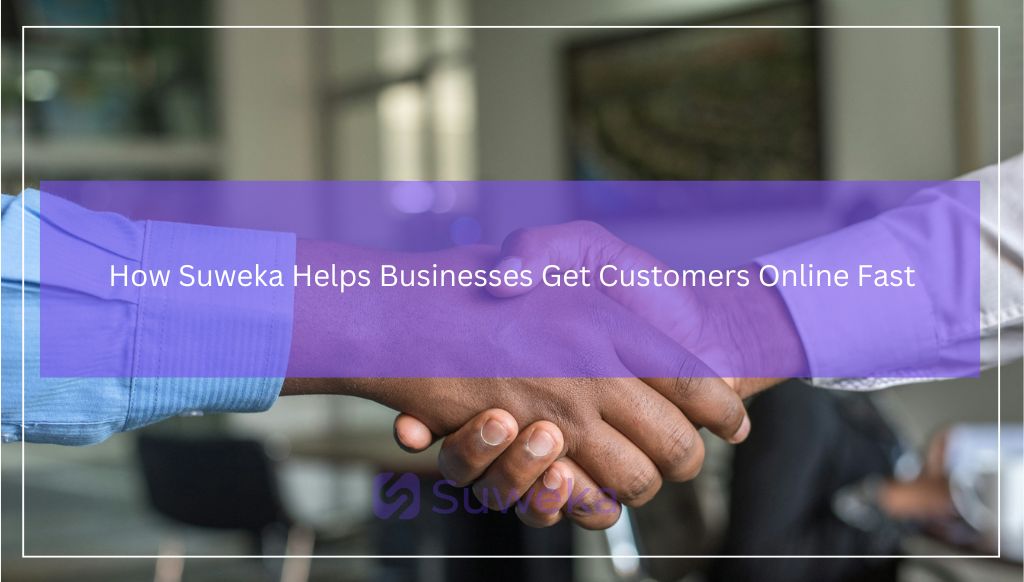Kenya’s digital economy is growing fast. Every day, more people shop, order, and book services online. From fashion and electronics to cakes and handmade crafts, customers are turning to Google, Instagram, and WhatsApp to find what they need.
If you run a small business, this means one thing: you need to start selling online now. The good news? Getting started is easier and more affordable than ever.
In this article, we’ll walk you through how to start selling online in Kenya, step by step — from choosing your niche to launching your website using Suweka templates that help you get customers fast.
1. Identify What You’ll Sell
Start by deciding what products or services you want to offer online. You can:
- Sell physical products (clothes, gadgets, beauty items)
- Offer digital products (ebooks, courses, music)
- Provide services (photography, catering, repairs)
Focus on a specific niche — it’s easier to market and build loyal customers. For example, instead of selling “fashion,” focus on “custom-made African shirts” or “women’s office wear.”
Ask yourself:
- Who needs this product?
- Why would they buy from me?
- What problem am I solving?
When you know your market clearly, your marketing becomes easier and more effective.
2. Choose a Business Name and Domain
A good business name should be short, memorable, and relevant to what you sell. Once you pick one, check if the domain name is available (for example, myshop.co.ke or myshop.com).
Suweka helps you connect your domain directly to your new website — so your business looks professional and trustworthy from day one. Avoid running your business only on social media; customers trust websites more than Instagram or WhatsApp alone.
3. Set Up Your Website — Your Online Storefront
Your website is your shop window. It’s where customers learn about your products, see prices, and make purchases.
With Suweka, you can choose a ready-made e-commerce template designed for Kenyan businesses. Each template includes:
- Product galleries and descriptions
- Add-to-cart and checkout pages
- Payment integration (M-Pesa, Paystack, cards)
- Mobile-friendly design
- Secure SSL (https://)
You don’t need to code or hire a developer. You just add your products, upload images, set prices, and you’re live — often within a few hours.
4. Add Quality Product Photos and Descriptions
Good visuals sell. Customers can’t touch or feel your products online, so your images must do the convincing.
Use clear, well-lit photos — ideally taken in natural light. Show different angles, packaging, or how the product is used.
Then write short, persuasive descriptions. Focus on what benefits the customer gets rather than listing plain features.
Example:
“These handcrafted leather wallets are built to last — made in Kenya using genuine leather and designed for both style and durability.”
Strong copy builds trust and encourages purchases.
5. Set Up Payment Options
One major advantage of selling online in Kenya is M-Pesa integration. Suweka supports local and international payments through M-Pesa, Paystack, and bank cards.
This makes it easy for customers to pay you directly from their phones — no complicated setup needed.
Ensure your pricing is transparent and displayed in Kenyan Shillings (KES). Always include delivery or service fees clearly to avoid confusion during checkout.
6. Market Your Website Online
Once your website is live, promote it everywhere your customers spend time. Effective strategies include:
- Social media marketing: Share your products on Instagram, Facebook, TikTok, and X (Twitter).
- WhatsApp marketing: Add your website link to your WhatsApp Business profile.
- Google Business Profile: Register your business to appear on Google Maps and local searches.
- Email marketing: Collect customer emails and send updates or promotions.
Suweka templates come SEO-ready, so your website can start appearing on Google for searches like “buy handbags in Kenya” or “best online cake shop Nairobi.”
7. Build Trust With Customers
Online buyers need confidence before sending money. You can build trust by:
- Displaying contact information (phone, WhatsApp, location)
- Showing testimonials or reviews
- Offering secure payment options (SSL)
- Including clear return and refund policies
When customers feel safe, they buy more and recommend your business.
8. Deliver Products Efficiently
Delivery is part of the customer experience. Partner with reliable local couriers like Sendy, Fargo, or G4S, and communicate delivery timelines clearly.
If you sell digital products or services, automate delivery through download links or instant confirmations.
Suweka allows you to integrate order confirmation messages and tracking pages, keeping customers informed at every step.
9. Track Performance and Improve
Use tools like Google Analytics and Search Console to monitor how people find and use your website.
Look at:
- Which products get the most views
- What pages people leave from
- How many complete purchases
These insights help you make smart decisions — like improving photos, changing prices, or adding new categories.
10. Keep Growing and Building Your Brand
Selling online is not a one-time event — it’s an ongoing process. Keep adding new products, sharing success stories, and running offers.
Update your website regularly with fresh content — new arrivals, promotions, or helpful blog posts. This keeps your site active, improves SEO, and builds your brand reputation.
With Suweka, scaling is easy. As your business grows, you can upgrade your plan, add advanced marketing tools, or even launch multiple stores — all within the same platform.
Conclusion
Starting to sell online in Kenya doesn’t require big capital or technical skills. You just need the right tools and a clear plan.
Suweka gives you everything you need — from professional templates and M-Pesa payments to SEO and local support — so you can go live fast and start earning from your products or services.
The earlier you start, the sooner customers find you. Don’t wait until competitors take your market share — your buyers are already online.
Take Action Now
Ready to start selling online today? Visit www.suweka.com/templates and choose a ready-made online store template built for Kenyan entrepreneurs.
Customize it, connect payments, and start receiving orders — fast, secure, and affordable with Suweka.



